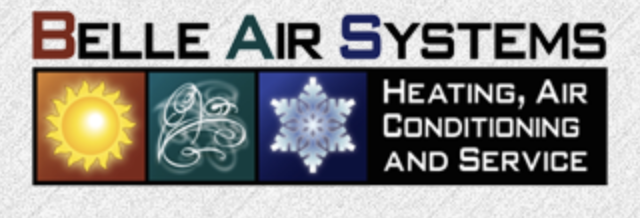Indoor air quality (IAQ) is a crucial aspect of our overall health and well-being, yet it often goes overlooked. The quality of the air we breathe indoors can have a significant impact on our respiratory health, allergies, and overall comfort. One of the primary factors influencing IAQ is the heating, ventilation, and air conditioning (HVAC) system in our homes and workplaces. In this blog post, we’ll explore the fundamentals of indoor air quality, how your HVAC system affects the air you breathe, and what you can do to ensure a healthy indoor environment for you and your family.
Understanding Indoor Air Quality:
Indoor air quality refers to the cleanliness and purity of the air inside a building or enclosed space. Poor indoor air quality can result from various factors, including pollutants, allergens, humidity levels, and inadequate ventilation. Common indoor air pollutants include dust, pet dander, pollen, mold spores, volatile organic compounds (VOCs), and airborne pathogens. Exposure to these pollutants can lead to respiratory issues, allergies, asthma exacerbations, and other health problems, especially for vulnerable individuals such as children, the elderly, and those with pre-existing health conditions.
How Your HVAC System Affects Indoor Air Quality:
Your HVAC system plays a critical role in maintaining indoor air quality by regulating temperature, humidity levels, and air circulation. However, if not properly maintained or operated, HVAC systems can contribute to indoor air pollution and compromise IAQ. Several factors influence how your HVAC system affects the air you breathe:
1. Filtration: The air filters in your HVAC system are designed to capture airborne particles and contaminants, preventing them from circulating throughout your home. However, if filters are dirty or clogged, they may become less effective at trapping pollutants, allowing them to recirculate in the air.
2. Ventilation: Proper ventilation is essential for ensuring adequate air exchange and diluting indoor air pollutants. HVAC systems with inadequate ventilation may trap pollutants indoors, leading to a buildup of contaminants and poor IAQ.
3. Humidity Control: Excessive humidity levels can promote mold growth and create an ideal environment for allergens and airborne pathogens. Conversely, low humidity levels can lead to dry air and respiratory discomfort. Your HVAC system should maintain optimal humidity levels to promote a healthy indoor environment.
4. Maintenance: Regular maintenance of your HVAC system is crucial for ensuring optimal performance and IAQ. This includes replacing air filters regularly, cleaning ductwork, inspecting for leaks or mold growth, and scheduling professional HVAC inspections and tune-ups.
Improving Indoor Air Quality:
To enhance indoor air quality and ensure a healthy living environment, consider the following tips:
– Use high-efficiency air filters and replace them regularly to trap airborne pollutants effectively.
– Maintain proper ventilation by opening windows and doors when weather permits and using exhaust fans in kitchens and bathrooms.
– Control humidity levels with a humidifier or dehumidifier as needed, aiming for a relative humidity range of 30% to 50%.
– Keep your home clean and dust-free by vacuuming regularly, washing bedding and upholstery, and minimizing clutter.
– Schedule professional HVAC maintenance at least once a year to ensure optimal system performance and IAQ.
Indoor air quality is a critical factor in maintaining a healthy and comfortable indoor environment. Your HVAC system plays a significant role in determining IAQ by regulating temperature, humidity levels, and air circulation. By understanding how your HVAC system affects the air you breathe and implementing strategies to improve IAQ, you can create a healthier living environment for you and your family. Remember to prioritize regular maintenance, proper ventilation, and humidity control to ensure optimal indoor air quality year-round. With proactive measures and attention to IAQ, you can breathe easier and enjoy a healthier indoor environment.






